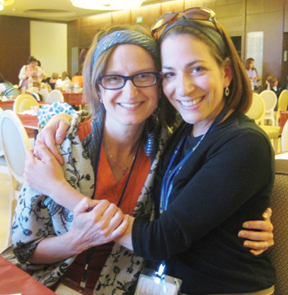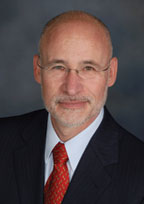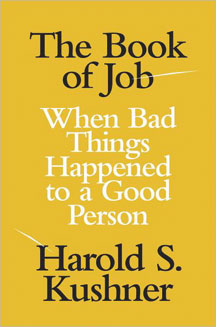Jewish Women’s Renaissance Project Israel trip empowers women to change the world
 What do you get when you take 14 women from diverse Jewish backgrounds, many of whom do not know each other, and send them on a 10-day trip to Israel together? An entirely new perspective and an amazing sisterhood!
What do you get when you take 14 women from diverse Jewish backgrounds, many of whom do not know each other, and send them on a 10-day trip to Israel together? An entirely new perspective and an amazing sisterhood!
I felt blessed to be able to return to Israel this summer with the Jewish Women’s Renaissance Project (JWRP) with the support of our local KC Kollel. JWRP was founded in 2008 with the goal of inspiring and empowering women “to change the world.” The flagship program is the 10-day mission trip to Israel — in five years, more than 2,000 women from over 40 cities and seven countries have traveled to Israel and taken this journey together.
As I look back on the trip, I struggle to put into words the experience and impact it has had on my life. The journey really began here in Kansas City with our city leader, Bracha Schulgasser. With her guidance, we came together as very different people with different goals — but with one mission — to learn and to bring this knowledge back home.
As we left Kansas City, we joined women from across the United States and Canada. We traveled to Northern Israel — the eyes and ears of the nation, as our trusted guide, Patrick, explained. The excitement overpowered any perceived jetlag, and we dined on delicious salads, vegetables, appetizers and fish at the beautiful restaurant Decks. Then we danced into the night! This was the start of “sleep is for when you get home” mentality.
The following day, we traveled farther inland to kayak the Jordan River and then on to Safed. Two of the four holy cities in less than 24 hours! Wow. The spirituality in Safed is almost palpable. Walking the steps — the many, many steps that our ancestors walked before us, is somehow grounding. We again had an amazing dining experience before heading back to the buses and continuing farther toward the “bellybutton” — Jerusalem.
As we arrived in Jerusalem (evening two in Israel!), music began playing on the bus and we watched as the city came into view. There is a beautiful mixture of old and new and of history and future. We settled into the King Solomon Hotel for the remainder of our time. The hotel is wonderful. We all noticed a mezuzah on every room door frame. The following morning, we walked to the Old City and to the Aish HaTorah Building. As we glanced out the back window, we stared at the Kotel in awe. We had a wonderful introductory lecture on the power of prayer, and then we went to the Kotel. For some of us, this was the first time; for others, it was a return to a safe place. For all of us, it was a humbling moment to stand where so many other Jews have stood for thousands of years and offered their prayers.
These first two days were the appetizers for the rest of the week — we continued to have amazing teachers, classes that spilled over into the evening when we were dining and shopping together on Ben Yehuda Street, and chesed projects that inspired us to bring home a better way to treat people and to find ways to help people in our own neighborhoods.
The classes built up to Shabbat. During the day on Friday, we learned about the mitzvah of making challah — and some great new ways of rolling the dough. We spent some time in the shuk bargaining and absorbing Israeli culture in the pre-Shabbat hours. As we were ushering in Shabbos, we were offered a safe place to keep our phones, etc. I decided to give mine over to the safety of the bag — this was the first time in many, many years that I can remember being without a phone. As scary as I thought it would be (“what am I forgetting and who’s trying to reach me?), it was truly liberating. I was completely free to be in the moment. All of the women joined in song and dance near the Wall — arms and voices linked. We were joined by soldiers, by young women participating in Birthright, by visitors. We were a sisterhood and we were welcoming Shabbat. Dinner was, of course, amazing. We were joined by lone soldiers and heard amazing stories of their experiences and their journeys.
As the week was drawing to a close, the experience kept growing. We traveled to Masada where two of the women from Kansas City were given their Hebrew names. What an honor to be able to be there with them. Mazel tov!
It is almost impossible to explain the impact of the daily experiences during this trip — the overriding message to me was that everything we do matters — even the little things. It is not all or nothing. If we all make an effort to do one thing every day and teach it to our children, we are making a difference. We will empower and change the world.
If you have the chance — if you get an email or see a flyer about this trip in future — please think about the opportunity. It will amaze you. And gentlemen, there is a special trip on the horizon just for you! Seize the opportunity. It will give you new perspective, and it just may change your life.



 Leslie and I were recently reviewing our personal legal documents — wills, powers of attorney, health care directives, etc. A friend asked us a question, “Do your children have their own ‘durable power of attorney for health care decisions’ documents?
Leslie and I were recently reviewing our personal legal documents — wills, powers of attorney, health care directives, etc. A friend asked us a question, “Do your children have their own ‘durable power of attorney for health care decisions’ documents? This excerpt is taken from the poem “My Name Is My Donor’s Name,” by renowned Israeli poet Yehuda Amichai. I am a big fan of Amichai’s poetry … and have been for several years. I believe he catches glimpses of universal human truths, not just of Israeli existence.
This excerpt is taken from the poem “My Name Is My Donor’s Name,” by renowned Israeli poet Yehuda Amichai. I am a big fan of Amichai’s poetry … and have been for several years. I believe he catches glimpses of universal human truths, not just of Israeli existence. “Human beings are meaning-makers. We want to be reassured that we live in a stable, orderly world.” It is this world view that inspired Rabbi Harold Kushner to express his theology in the widely popular “When Bad Things Happen to Good People,” reflecting his personal struggle to reconcile his theology with the tragically short life of his son, who suffered from a rare genetic disorder. Much of the theology expressed in that book was based on the Kabbalah of Isaac Luria and on the book of Job. In his latest book, “The Book of Job: When Bad Things Happened to a Good Person,” he returns to the latter with the goal of making this difficult book of the Bible accessible to the modern reader.
“Human beings are meaning-makers. We want to be reassured that we live in a stable, orderly world.” It is this world view that inspired Rabbi Harold Kushner to express his theology in the widely popular “When Bad Things Happen to Good People,” reflecting his personal struggle to reconcile his theology with the tragically short life of his son, who suffered from a rare genetic disorder. Much of the theology expressed in that book was based on the Kabbalah of Isaac Luria and on the book of Job. In his latest book, “The Book of Job: When Bad Things Happened to a Good Person,” he returns to the latter with the goal of making this difficult book of the Bible accessible to the modern reader.